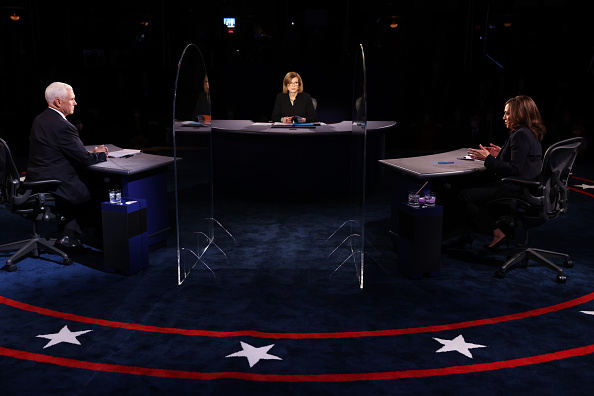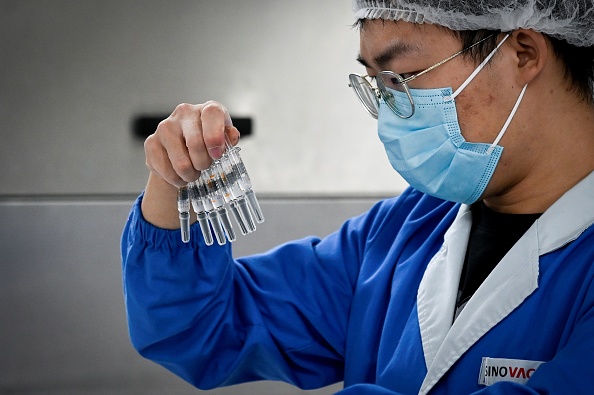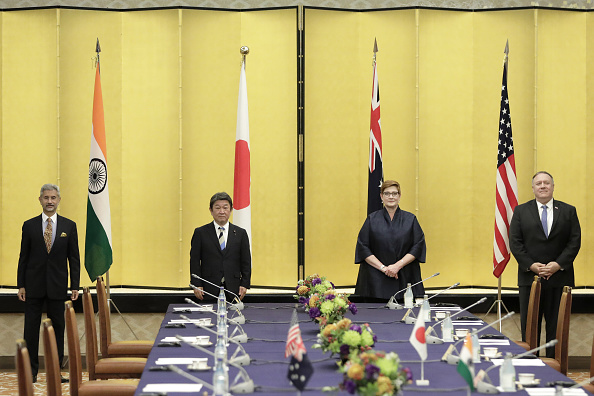
 Election Looming
Election LoomingThe U.S.-China relationship was a hot button issue at the United States Vice Presidential debate this week. Both Vice President Mike Pence and Senator Kamala Harris criticized the other's running mate for their positions on China. Pence misleadingly claimed that Joe Biden wants to repeal all of the tariffs that President Trump has put into effect; whereas Harris cited a survey showing that America has lost 300,000 manufacturing jobs due to the trade war.
Shortly after the debate, President Trump announced he would yet again increase taxes on Chinese goods if he wins reelection, despite the WTO ruling last month that the Trump administration's tariffs have violated the rules of the multilateral trade organization. The U.S.-China relationship has deteriorated over the past few years, most dramatically in 2020.
In a new Pew study of public sentiment across 14 nations, about 61% believe that China has done a substandard job in handling the coronavirus outbreak, and negative views of China are at an all-time high. Only the United States received a worse evaluation of how it has handled the pandemic, with 84% of respondents saying it has been handled poorly. Read Tao Wenzhao's "China's Response to Decoupling" on China-U.S. Focus.
 Vaccine Deployment
Vaccine DeploymentChinese biomedical firms are starting experimental trials of COVID-19 vaccines in over a dozen countries in a race to reach immunization. Thousands of people across Mexico, Brazil, Saudi Arabia, Egypt, and beyond have received, or will soon receive, injections of the trial vaccine, which is being conducted by three of China's top vaccine-makers. Some countries involved in the trials say that their country's early participation would grant them early access to a vaccine if it should come from China. Some have expressed concerns over the trial, given past issues surrounding vaccine development. China's National Health Commission official Zheng Zhongwei reassured that there have been no serious side effects in the clinical trials, noting that "We've made it very clear that the COVID-19 vaccine we put into emergency use [is] safe. Their safety can be ensured but their efficacy is yet to be determined."
China has now said it will join Covax, an international effort to distribute coronavirus vaccines to about two-thirds of the world population by 2022, in a reversal that makes the country the biggest player in the vaccine development race to join the initiative. Read Kemel Toktomushev's "From Russia with Love: On the Hunt for a COVID-19 Vaccine" on China-U.S. Focus.
 Quadrilateral Dialogue
Quadrilateral DialogueAustralia, India, Japan, and the United States met this week in Tokyo for their annual Quadrilateral Security Dialogue, also known as the "Quad." Starting in 2007, the four democracies came together at the proposal of Japan's then-Prime Minister Shinzo Abe. Now in 2020, many members of the Quadrilateral Security Dialogue face growing tensions with China, with both the U.S. and Australia facing tariff-related challenges and India handling a border dispute.
During the second Quad gathering between the four democracies, U.S. Secretary of State Mike Pompeo called on the group to resist China's "exploitation, coercion, and corruption." Echoing Pompeo's statement, Indian External Affairs Minister called on the "vibrant and pluralistic democracies" to maintain "a free, open and inclusive Indo-Pacific." Ahead of the meeting, Chinese Foreign Ministry spokesman Wang Wenbin commented at a press briefing that "instead of forming exclusive cliques, multilateral and plurilateral cooperation should be open, inclusive and transparent."
Prepared by China-US Focus editorial teams in Hong Kong and New York, this weekly newsletter offers you snap shots of latest trends and developments emerging from China every week, while adding a dose of historical perspective.
- 2020-10-03 Golden Week Kicks Off
- 2020-09-26 Virtual Diplomacy
- 2020-09-18 Digital Domain
- 2020-09-12 Reframing the Ground Rules
- 2020-09-05 Reciprocity in Action
- 2020-08-29 Who’s Tougher on China?
- 2020-08-22 To Talk, Or Not To Talk
- 2020-08-15 Domestic Circulation
- 2020-08-07 Fraying Relations
- 2020-08-01 Turning Tides
- 2020-07-24 Up in Smoke
- 2020-07-17 Status Stripped
- 2020-07-10 A Historic Moment
- 2020-07-03 Handover Tested
- 2020-06-27 Relationship Spiral
- 2020-06-20 Bolton Bombshell
- 2020-06-13 Fits and Starts
- 2020-06-06 Confluence of Crises
- 2020-05-29 Questions of Autonomy
- 2020-05-22 Pandemic Decisions
